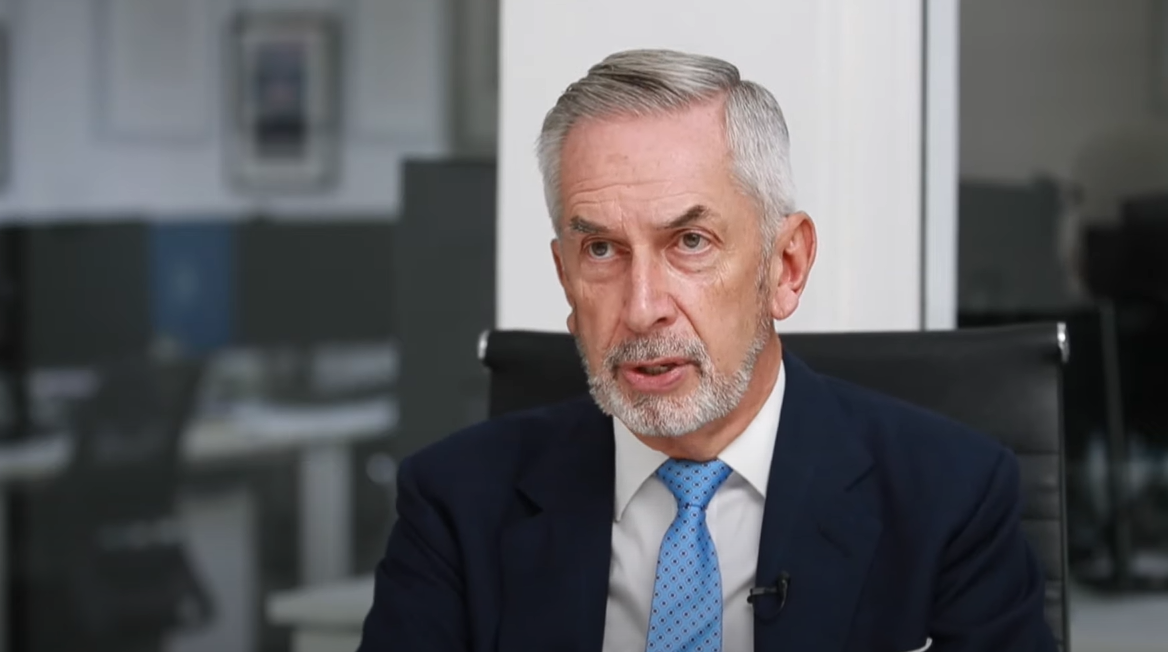As Terry Smith’s emerging market trust closes, where should investors turn?
20th December 2022 09:36
by Jennifer Hill from interactive investor
We asked financial advisers, fund analysts and wealth managers to share 10 emerging market fund and investment trust ideas for shareholders in Fundsmith Emerging Equities Trust who are looking for a new home for their capital.

Shareholders in Fundsmith Emerging Markets Trust (FEET) overwhelmingly gave their blessing to liquidate the investment trust, which ultimately failed to add value.
Some may have been disappointed that there was no rollover option, which can be a tax-efficient way of allowing investors to sell at a time of their choosing.
“Even so, we do agree that it can be far better to wind up an investment trust and return money to shareholders than to limp on for years while taking fees from investors,” says Dzmitry Lipski, head of funds research at interactive investor.
Lipski adds: “Darwin has always been alive and well in the investment trust world – but investors should not necessarily see this as a bad thing.”
Around 90% of the trust’s portfolio by value is expected to be paid to shareholders by the end of 2022, with a second and final distribution expected by next summer.
As those who held shares in FEET receive most of their investment back and seek a new home for their capital, where do professional investors recommend?
Ashoka India Equity
At the end of October FEET had 43% in Indian equities. Shareholders who want to maintain this regional exposure and emulate the Fundsmith focus on quality and resilient growth businesses could consider the Ashoka India Equity Investment (LSE:AIE), says Peel Hunt.
“The investment manager, White Oak, employs a rigorous stock-picking approach, investing in scalable businesses with superior returns on capital and strong corporate governance,” says research analyst Thomas Pocock.
He points to the International Monetary Fund (IMF) forecasting Indian economic growth of 6%-plus per year to 2027.
“AIE’s active and unconstrained approach offers investors access to growth in the region as well as outperformance versus the market and peers,” adds Pocock.
- Watch our video: Why India – not China – is the most exciting market in Asia
Baillie Gifford Emerging Markets Growth
Chris Metcalfe, chief investment officer at IBOSS, part of Kingswood Group, believes now is a “tremendous opportunity” to invest in emerging markets amid a “potential rollover from peak dollar and wind-down of China’s zero-Covid policy”.
One fund it has stuck with in the space is Baillie Gifford Emerging Markets Growth, which adopts the fund manager’s usual growth, often tech-focused orientation.
“The team tends to outperform in rising market conditions, and as we’re bullish on emerging markets from here, it’s the kind of fund that should do well,” says Metcalfe.
He adds: “It’s overweight Latin America, an area we remain positive on, predicated on our constructive view on commodities over the medium term.”
BlackRock Frontiers
Winterflood Securities likes the BlackRock Frontiers (LSE:BRFI) Investment Trust for the access it gives to underinvested markets in a nimble and diversified fashion.
“While investors might fairly expect frontier markets to bear the brunt of macroeconomic instability, BRFI is presently exposed to relatively sophisticated economies often underpinned by commodity production,” says analyst Shavar Halberstadt.
A third of the portfolio is allocated to Gulf states, more than 30% to ASEAN economies and 10% to southern and eastern Europe, collectively helping the investment trust outperform peers in 2021 and 2022.
Significant weightings to financials, materials and energy offer a degree of resilience in 2023, while the current double-digit discount is a potentially attractive entry point.
Federated Hermes Global Emerging Markets Equity
Canaccord Genuity Wealth Management likes the Federated Hermes Global Emerging Markets Equity fund for its consistent and impressive risk-adjusted returns. Some clients have held the fund for five years.
“The strategy focuses on two key tenets of quality and safety,” says Kamal Warraich, Canaccord’s head of equity fund research. “In other words, the team sticks to buying financially strong, market-leading companies at a reasonable price.”
The managers are not constrained by country or market cap, so investors can expect divergence from the index. At present, the fund favours large caps in the financial and technology sectors. On a regional basis, the team has historically found most opportunities in Asia.
JPM Emerging Markets
Quilter Cheviot likes JPM Emerging Markets, which shares FEET’s bias towards higher-quality growth companies across emerging markets.
“While it’s more growth-biased in nature, it is not on the extreme side of the value versus growth coin, so would be a suitable alternative,” says Nick Wood, Quilter Cheviot’s head of fund research, who reckons the fund’s weaker short-term performance presents a good entry point.
The fund is relatively balanced at present with an overweight to India amid favourable demographics and strong economic growth expectations. It has increased exposure to financials in recent months and retains a significant weighting to technology. These give exposure to emerging market consumers, who benefit from rising disposable incomes and urbanisation.

JPM Emerging Markets Income
Plymouth-based Shore Financial Planning added the JPM Emerging Markets Income fund to all portfolios balanced and above in January 2020.
Investment director Ben Yearsley says: “I’d describe it as a quality income fund as opposed to a value-based one. We pair it with an out-and-out growth fund.”
He likes dividend discipline in most markets for the commitment it shows to shareholders. In growth markets such as emerging markets, it should lead to rising returns.
“Every company in the portfolio has to pay a dividend, with 1% being the minimum, but the manager thinks the sweet spot is 3%-6% as this gives companies enough spare cash to reinvest,” he adds.
Mobius Investment Trust
JM Finn likes Mobius Investment Trust (LSE:MMIT), which is part of interactive investor's Super 60 Investment Ideas. Similarly to FEET, it uses bottom-up research to identify mispriced high-quality businesses in emerging markets.
“What differentiates the trust is how MMIT seeks to identify resilient business models within small and mid-sized companies that exhibit lower environmental, social and governance standards, and uses active engagement to modernise corporate culture, environmental standards and business practices to unlock value,” says Ben Hudson, an assistant investment manager at JM Finn.
- Why cautious funds failed to deliver in 2022
- Ten growth funds the pros have been sticking by despite style rotation
The managers hold a concentrated portfolio of only 25 to 30 names, which allows them to establish a clear ESG engagement strategy for each holding.
Stewart Investors Global Emerging Markets Sustainability
Another option liked by interactive investor is the Stewart Investors Global Emerging Markets Sustainability fund, a core recommendation on the ACE 40 sustainable funds list.
The fund invests in high-quality mid-to-large-cap companies that are considered to be well positioned to contribute to and benefit from sustainable development, with a focus on delivering long-term capital growth over market cycles.
Almost half of the portfolio is invested in technology and consumer stables sectors, with more than 60% allocated to the emerging Asia region.
“The fund has outperformed the benchmark and its peers including both sustainable and mainstream funds over short and longer timeframes demonstrating that focus on sustainable attributes enhance returns for investors over time,” says Lipski.
Templeton Emerging Markets
James Carthew, head of investment companies at QuotedData, suggests opting for FEET’s alma mater, Templeton Emerging Markets (NYSE:EMF), which can be bought at a double-digit discount.
- The asset class tipped to lead the charts in 2023
- Worst-performing fund sectors of 2022: time to buy or further pain to come?
“Most trusts in the sector have seen their net asset value fall over the past year and TEMIT is no exception,” he says.
“It’s the second-best performing global emerging fund over that period but has failed to beat the MSCI Emerging Markets Index over most time periods to end-October.
“To us, that means performance must buck up or shareholders are going to start calling for the trust to go the way of FEET. Since the latter outcome would see a narrowing of the discount, this might be a win-win.”
VinaCapital Vietnam Opportunity
While not strictly an emerging markets trust, Numis Securities rates the prospects of VinaCapital Vietnam Opportunity (LSE:VOF).
Analyst Gavin Trodd says: “Our recent trip to the VinaCapital conference in Saigon reinforced our already high conviction in the investment case, driven by a strong and balanced economy, a young, educated population...and a growing middle class that is driving growth in domestic demand.
“As Vietnam appears on the radar of more generalist investors, this should provide a positive backdrop for the country and we believe there’s potential for a tighter discount on VOF to be more sustainable in future.
“Furthermore, investors have the potential future catalyst of MSCI Emerging Markets inclusion, albeit this is at least a few years away.”
Disclosure
We use a combination of fundamental and technical analysis in forming our view as to the valuation and prospects of an investment. Where relevant we have set out those particular matters we think are important in the above article, but further detail can be found here.
Please note that our article on this investment should not be considered to be a regular publication.
Details of all recommendations issued by ii during the previous 12-month period can be found here.
ii adheres to a strict code of conduct. Contributors may hold shares or have other interests in companies included in these portfolios, which could create a conflict of interests. Contributors intending to write about any financial instruments in which they have an interest are required to disclose such interest to ii and in the article itself. ii will at all times consider whether such interest impairs the objectivity of the recommendation.
In addition, individuals involved in the production of investment articles are subject to a personal account dealing restriction, which prevents them from placing a transaction in the specified instrument(s) for a period before and for five working days after such publication. This is to avoid personal interests conflicting with the interests of the recipients of those investment articles.